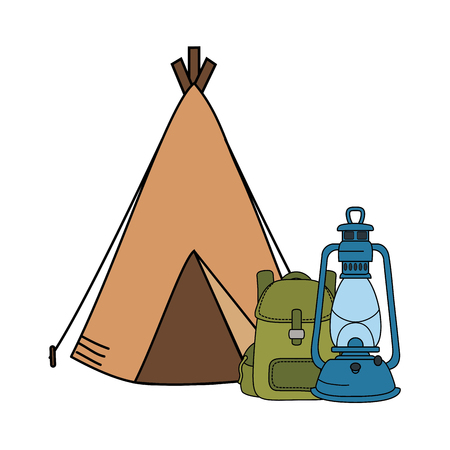Introduction: The Allure of Wild Camping in the UK
There is a quiet magic that lingers over the British countryside. Picture awakening at dawn amidst the gentle shroud of Cumbrian mist, or drifting off to sleep beneath a canopy of ancient oaks and whispering pines on the edge of a Cornish woodland. From the brooding expanse of Dartmoor’s rugged tors to the rolling fells of the Lake District, wild camping in the UK evokes both nostalgia and adventure, promising a return to nature’s embrace far from city lights and crowded campsites.
Yet as more Britons seek solace under star-strewn skies, there is an ever-stronger call for sustainability. The romance of the landscape comes with a responsibility—to tread lightly upon mossy banks and heather-strewn hills, ensuring these wild places endure for generations. This has inspired a new wave of eco-conscious campers who are reimagining their gear, choosing sleeping bags and mats crafted with both comfort and conscience in mind. As we set out on our journey through Britain’s most enchanting landscapes, let us explore how sustainable sleeping solutions can deepen our connection with the land while preserving its timeless beauty.
Why Sustainability Matters: The Environmental Impact of Traditional Camping Gear
When we escape into the British countryside—be it the rugged Lake District, mystical Scottish Highlands, or Cornwall’s windswept coast—we’re seeking solace in nature’s embrace. Yet, many traditional camping essentials, especially sleeping bags and mats, silently leave a heavy footprint on the very wild places we cherish. Understanding this impact is crucial for every camper who values Britain’s rich natural heritage.
Conventional sleeping bags and mats often rely on synthetic materials like polyester and PVC, which are derived from fossil fuels. Their production emits significant carbon dioxide, contributing to global warming—a pressing concern as unpredictable weather patterns already threaten our moors and woodlands. What’s more, these products are rarely biodegradable. When they reach the end of their life cycle, they frequently end up in UK landfills, where they can take centuries to break down.
The Hidden Cost: From Manufacturing to Disposal
| Environmental Issue | Impact on British Ecosystems |
|---|---|
| Carbon Emissions (Manufacturing) | Increases air pollution; exacerbates climate change affecting local flora and fauna |
| Landfill Waste (Disposal) | Non-biodegradable materials persist for generations; leaching chemicals into soil and waterways |
| Resource Extraction | Depletes non-renewable resources; disrupts landscapes and habitats |
Protecting Our Wild Places: A British Commitment
The British Isles have a long-standing tradition of stewardship—from the National Trust’s efforts to conserve ancient woodlands to passionate local volunteers cleaning up riverbanks after a weekend of wild camping. Choosing eco-conscious gear isn’t just a personal preference—it’s part of a collective movement to ensure that our heaths, dales, and forests remain havens for both wildlife and future generations of explorers.
Sustainable choices honour our love for the land
Every time we opt for greener sleeping solutions, we help preserve the quiet majesty of dawn mists over Dartmoor or the chorus of songbirds greeting us at sunrise in an ancient oak wood. As British campers, our responsibility is not only to enjoy these landscapes but to protect them—one sustainable night’s sleep at a time.

3. Features of an Eco-Conscious Sleeping Kit
When it comes to sleeping under the British stars, choosing eco-conscious gear is as much about comfort as it is about caring for the landscape we cherish. The most sustainable sleeping bags and mats begin with the thoughtful selection of materials. Look for options crafted from recycled polyester or responsibly sourced down, both of which significantly reduce environmental impact compared to virgin synthetics or conventionally farmed feathers. Many British brands now champion organic cotton linings and plant-based insulation, providing warmth without compromise.
Sustainable Materials
The hallmark of a green sleeping kit lies in its materials. Seek out products labelled with the Global Recycled Standard (GRS) or those made using PFC-free water-repellent finishes, ensuring no harmful chemicals seep into the soil during your outdoor escape. Some forward-thinking British makers are even experimenting with hemp blends and biodegradable fabrics, echoing a return to nature’s own cycles.
Responsible Manufacturing Processes
Beyond what goes into your kit, how it’s made matters too. Favour brands that are transparent about their supply chains and employ low-impact dyeing processes, reduced water usage, and minimal waste production. Many UK manufacturers now power their workshops with renewable energy or participate in carbon offset schemes – all steps that support the wild places we love to explore.
British Eco-Ratings and Certifications
When browsing for your next sleeping bag or mat, keep an eye out for trusted certifications such as the Blue Sign, Fair Wear Foundation, or the Soil Association Organic Standard. These marks signify adherence to rigorous environmental and ethical standards, offering peace of mind as you drift off beside a misty loch or beneath a canopy of ancient oaks.
In essence, selecting a sustainable sleeping kit is an act of stewardship—protecting Britain’s cherished landscapes while investing in restful nights under canvas, all woven together by conscious choices and mindful design.
4. Our Top Picks: Sustainable Sleeping Bags and Mats Available in the UK
When it comes to sleeping under the stars across Britain’s moors, woodlands, and coastlines, choosing eco-friendly gear can make every night’s rest lighter on the planet. We’ve thoughtfully gathered a selection of sustainable sleeping bags and mats that reflect both British ingenuity and our shared commitment to preserving wild places. Below, you’ll find options from local brands and those easily found on UK shelves—each blending comfort, durability, and mindful materials.
Eco-Conscious Sleeping Bags
| Brand | Model | Sustainable Features | Where to Buy |
|---|---|---|---|
| Vango | Evolve Superwarm | Recycled filling & lining, PFC-free water repellency | Go Outdoors, Blacks, Millets |
| Rab | Solar Eco 3 | 100% recycled fabric & insulation, manufactured in Derbyshire | Cotswold Outdoor, Ellis Brigham |
| Alpkit | Pipedream 400 (Recycled) | Recycled down fill, ethical sourcing, UK-based brand | Alpkit.com (direct) |
| The North Face | ECO Trail Synthetic 20 | 50% recycled materials, bluesign® approved fabrics | Snow+Rock, Ellis Brigham |
Sustainable Sleeping Mats
| Brand | Model | Sustainable Features | Where to Buy |
|---|---|---|---|
| Exped | SYNMAT UL LITE RECYCLED | Recycled polyester shell, carbon-neutral manufacturing process | Cotswold Outdoor, Trekitt |
| KOMBI Campers (UK independent) | Bamboo Roll Mat | Bamboo fibre construction, biodegradable, local craft production in the UK | KOMBIcampers.co.uk (direct) |
| NEMO Equipment | Tensor Insulated Regular Wide (2024) | BluedeSign® certified fabrics, PFAS-free coatings, recycled stuff sack included | Trekitt, WildBounds.co.uk |
| Multimat (UK) | Aeromat Recycled Foam Mat | Made with up to 60% recycled foam content; British-made since 1986 | Millets, Multimat.uk.com (direct) |
A Few Thoughtful Tips for Choosing Sustainable Kit:
- Local First: Prioritise British brands or products made here to reduce transport emissions.
- Materials Matter: Look for certifications like bluesign®, PFC-free coatings, or GRS (Global Recycled Standard).
- Lifespan Counts: Durable gear that lasts many seasons is ultimately most sustainable—repair kits and spare parts are a bonus.
A Gentle Reminder for Your Next Wild Night Out:
Selecting an eco-conscious sleeping bag or mat isn’t just about comfort—it’s a quiet pledge to tread softly across Britain’s landscapes. Each choice supports innovation close to home and helps ensure our wild places remain unspoilt for dreamers yet to come.
5. Tips for Sleeping Sustainably on British Soil
Sleeping under the wide, ever-changing British sky is a privilege best enjoyed with care for both your kit and the landscapes you rest upon. Whether you’re pitched by a misty Scottish loch or nestled in the dappled light of an English woodland, sustainable habits ensure your sleeping bag and mat become cherished companions for many adventures to come.
Prolonging the Life of Your Eco Gear
Start by treating your equipment with gentle respect. Always air out your sleeping bag and mat after each trip—moisture from Britain’s infamous drizzle can quickly lead to mildew if left unchecked. Store them loosely in breathable bags rather than tight stuff sacks, allowing fibres and insulation to recover and prolong their warmth. Mend small tears or faulty zips promptly using repair patches or kits, keeping unnecessary waste out of landfill and ensuring your gear is always adventure-ready.
Cleaning Without Harsh Chemicals
The lush British countryside deserves to be protected from unnecessary pollutants. Opt for eco-friendly, biodegradable soaps when cleaning your kit—these are kind both to the delicate fabrics and to streams and soils. Hand-wash sleeping bags in cool water, spot-cleaning as needed, and only machine wash when absolutely necessary. For mats, simply wipe down with a damp cloth and mild soap; avoid chemical sprays that can break down materials over time.
Responsible Wild Camping Practices
Britain’s wild spaces are precious, so always follow Leave No Trace principles. Camp on durable ground where possible—short grass or established pitches—and avoid damaging mosses or wildflowers. Use a sleeping mat to minimise impact on the earth below. Respect local regulations: wild camping is generally permitted in Scotland but more restricted elsewhere, so check guidelines before you go. Finally, pack out all rubbish (including food scraps) and leave your spot looking untouched, ensuring it remains magical for those who follow.
Sustainable sleeping is a gentle pact with nature—a way of travelling lightly across the land while treasuring every fresh dawn and misty twilight Britain offers.
6. Looking Forward: The Future of Eco-Conscious Camping in Britain
The British camping scene is entering a new era, where tradition meets innovation beneath the open skies. As more campers seek to tread lightly on the land, the development of sustainable sleeping bags and mats is just the beginning. Forward-thinking designers are blending recycled fibres with high-performance insulation, while natural dyes and biodegradable materials are making their way into tents and accessories—each product a small rebellion against single-use culture. The future promises even smarter gear: sleeping mats that repair themselves or bags stuffed with traceable, cruelty-free down. Yet, it’s not only about what we pack, but how we camp—sharing kit through local gear libraries, supporting homegrown brands, and choosing campsites that prioritise conservation over convenience.
This shift is nurturing a deeper connection between people and place. British campers are rediscovering ancient woodlands and wild moors with renewed respect, leaving no trace but footprints on dew-kissed grass. Community events like eco-campouts and litter picks are weaving sustainability into our shared outdoor rituals, turning mindful camping from a solitary act into a collective movement. The culture of adventure is changing; it’s less about conquering landscapes and more about cherishing them—finding beauty in simplicity and meaning in stewardship.
Looking ahead, the path to truly sustainable camping in Britain will be guided by curiosity and care. Innovations in eco-friendly gear will continue to inspire us, but it’s the everyday choices—mending instead of discarding, buying local, teaching children to love the land—that will shape the future. As we wrap ourselves in responsibly made sleeping bags under a sky full of constellations, we become part of a growing legacy: one where adventure and environmental guardianship walk hand in hand across Britain’s wild heartlands.


